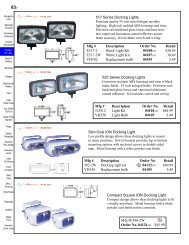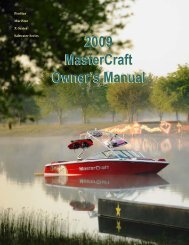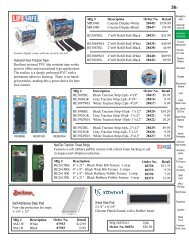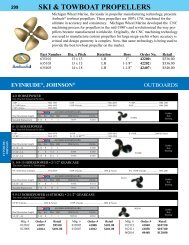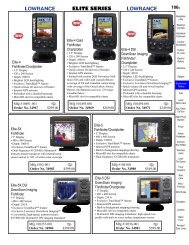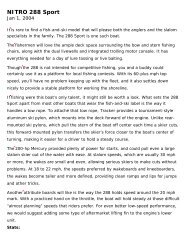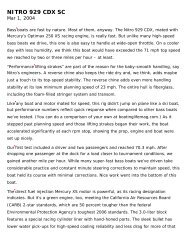contacts - ARI Network Services
contacts - ARI Network Services
contacts - ARI Network Services
You also want an ePaper? Increase the reach of your titles
YUMPU automatically turns print PDFs into web optimized ePapers that Google loves.
In the Northwest, most boat clos-<br />
ings are facilitated through a third-party<br />
closer. An agent who, independent from<br />
the broker or lender, completes the necessary<br />
research; prepares the appropriate<br />
releases, transfer documents and new titling<br />
forms; and coordinates the collection<br />
and disbursement of funds. This is, typically,<br />
a maritime title company.<br />
Upon first contact with the title<br />
company, you will be asked a series of questions. Most will be<br />
somewhat familiar and can be answered with little effort, but<br />
some may seem strange and, possibly, a little perplexing.<br />
The title company will begin by getting the specifics of<br />
the transaction; broker, type of boat, lender, date of closing, etc.<br />
None of which will cause much difficulty.<br />
The big question comes next, do you plan on documenting<br />
the vessel with the Coast Guard or titling it with the State?<br />
The exchange usually goes something like this:<br />
“Eh, excuse me? Do I plan on doing what with whom?”<br />
“Well,” explains the title agent, “there are different meth-<br />
ods to title a vessel. While many states offer a title similar to<br />
what is issued for an automobile, if a vessel meets certain requirements,<br />
it is eligible for a Certificate of Documentation issued<br />
by the U.S. Coast Guard. “<br />
By Molly Holden<br />
Managing Member of Pacific Maritime Title, LLC.<br />
COAST GUARD<br />
DOCUMENTATION 101<br />
Itʼs your first big boat purchase. All of the essentials are in place: the<br />
price is agreed upon; the survey is complete; the financing is lined up. You<br />
are referred by either your broker or lender to a maritime title company to<br />
complete the transaction. What does this mean? What happens now?<br />
13<br />
“Wow. That sounds impressive,<br />
but, uh, why would I need it?,” you<br />
ask.<br />
“People choose documentation<br />
for many different reasons: your<br />
lender may require it for your loan; you<br />
may be planning on a commercial usage<br />
that requires documentation; you<br />
may be planning on going into foreign<br />
ports or international waters and want<br />
the protection of the Document; or, maybe you just donʼt want<br />
to put those little state registration numbers on your nice, big,<br />
new boat.”<br />
“Let me explain a little further. A vessel must meet certain<br />
requirements to be allowed to be documented with the<br />
Coast Guard. The requirements are dependent upon the desired<br />
usage of the vessel. All documented vessels must be at<br />
least five net tons in volume (approximately 26ʼ or larger in<br />
length), and all owners must be United States citizens. These<br />
are the only requirements for a vessel that will be used for<br />
recreational purposes.”<br />
“Vessels purchased for commercial usages (i.e. carrying<br />
freight or passengers, fishing etc.) have additional requirements.<br />
For example, acceptable evidence must be submitted<br />
to the Coast Guard showing that the vessel and its component<br />
parts were manufactured and built in the United States.






